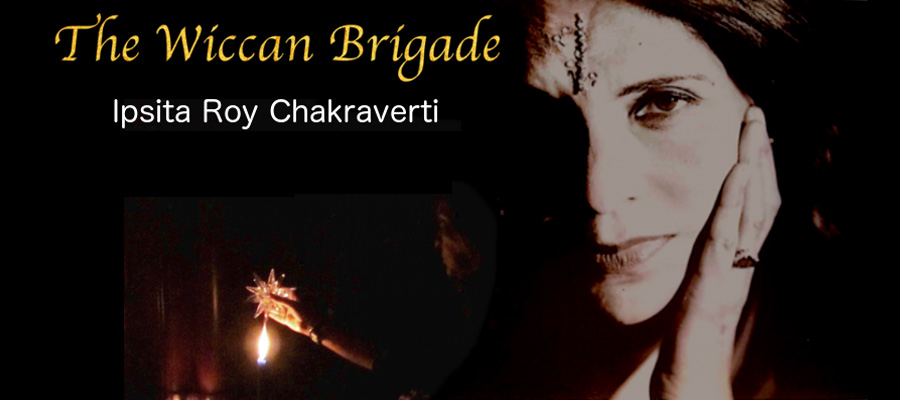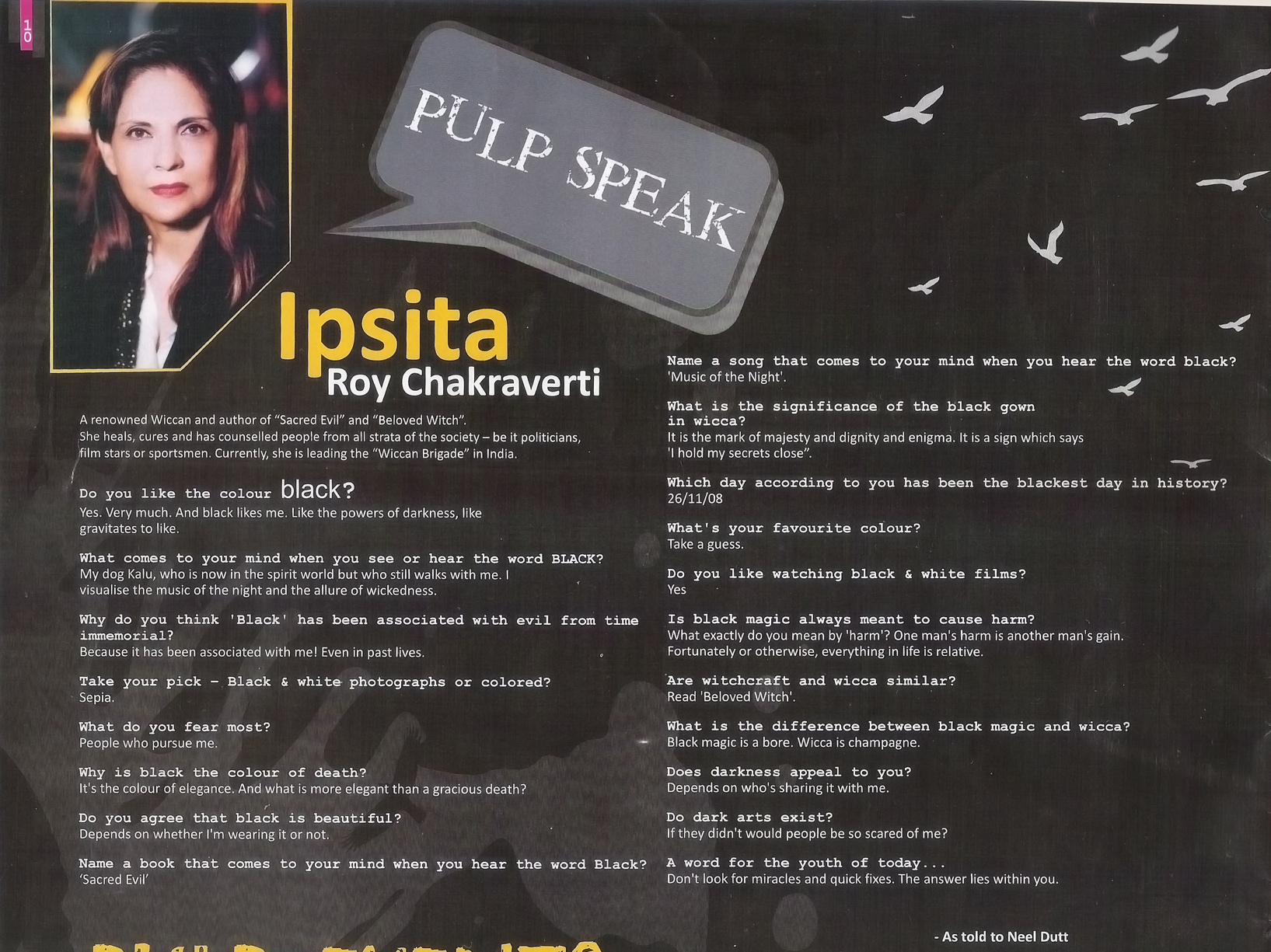


Magic has a strange aura. The mind finds it difficult to either wholeheartedly trust or absolutely discard something that it cannot quite comprehend. So magic remains as an afterthought in an urban existence defined by reason. It may suddenly rear its head on an innocent Sunday morning. From the interiors of a posh flat in South Calcutta may emerge a witch, not riding a broom but approaching the sofa with a hospitable smile.
But Ipsita Roy-Chakraverti, the “beloved witch”, seemed grounded more in reality than in magic. She is the first and the most well-known exponent of Wicca or witchcraft in India. Contrary to popular perception, Wicca is not mindless mumbo-jumbo but a spiritual order and a branch of study rooted in the esoteric cultures of ancient civilizations. Ipsita calls it “a study of comparative belief systems”. It includes various pagan beliefs existent before institutionalized religions took over. Ipsita says it is a way of life rather than a religion. “Wicca” means “the craft of the wise”. Ipsita’s achievement lies in bringing Wicca to the Indian diaspora and connecting it to ancient beliefs of India such as Tantra and Dakini Vidya.
Ipsita has set up a learning centre for witchcraft called the Wiccan Brigade, but has not made it a registered academy as she did not want to “institutionalize” it too much. Nevertheless, there are certain screening procedures and criteria for admission that are not very different from those in a formal institution. Ipsita said she would look for a spiritual and academic interest in Wicca and not just “thrill and curiosity” while judging an applicant: “Intelligence is a must as Wicca is a cerebral branch of learning.”
But what is surprising is that in today’s remote-controlled civilization, a quest for the unknown still thrives: something as elusive as witchcraft draws corporate professionals, journalists and lawyers. For the members of the Wiccan Brigade witchcraft is a “genuine quest”, Ipsita says. “It is a necessity in this day and age as the world has become hard and cynical and religions have become too politicized... witchcraft could give people solace.”
However, if one looked around, witchcraft is not just a source of solace but also a raging fashion statement for urban young people, especially in the West. Many a teenage girl would call herself a ‘witch’ just for fun. J.K. Rowling has made being a witch quite intriguing already. In this “hard and cynical” world, everything sells if packaged in the right way.
Ipsita finds such tendencies frivolous and far away from what she and her Wiccan Brigade represent. When I mentioned the Harry Potter movies, she said with a tinkling laugh, “I can only say that I was here before Harry Potter.” But she added that Harry Potter has served to free the word ‘witch’ of its long-standing sinister connotation to a certain extent. And so has Ipsita. “When I started in 1987 in Calcutta, ‘witch’ used to be a bad word, an abusive expression,” she said. She went on to recount how she has struggled lifelong to remove the stigma attached to the word. In the process she has had to face “brickbats”, often quite literally. But Ipsita’s success in this context is limited only to a section of the urban populace. In Indian villages, ‘witch’ is not only a “bad” but also a dangerous word. Even in the city, a witch is generally that evil woman who has stolen one’s husband.
How did the word ‘witch’ acquire a sinister ring and the worshipper of Goddess Diana become the ‘daiyen’ or ‘daini’? Ipsita said it was because of the marginalization of pagan cultures by mainstream religions. “This battle was a gendered one as well,” she added. Witchcraft has feminist tendencies as witches were the “worshippers of the mother goddess”, while conventional religions promoted patriarchy.
Ipsita’s website states that a witch is “somebody who is wise”. How does one define wisdom? “I have been a sceptic and yet after years of research into the unexplained, I am now a believer who has found many a proof,” she says.
Only, as an incorrigible sceptic, I tend to feel that wisdom lies in not accepting any evidence as absolute.
